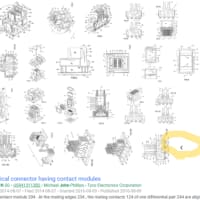"mRNA is created during the process of transcription, where an enzyme (RNA polymerase) converts the gene into primary transcript mRNA (also known as pre-mRNA). This pre-mRNA usually still contains introns, regions that will not go on to code for the final amino acid sequence. These are removed in the process of RNA splicing, leaving only exons, regions that will encode the protein." (Messenger RNA, Wikipedia)
"tRNA-derived fragments (or tRFs) are short molecules that emerge after cleavage of the mature tRNAs or the precursor transcript.[41][42][43][44] Both cytoplasmic and mitochondrial tRNAs can produce fragments.[45]" (Transfer RNA, Wikipedia)
"Telomere lengths may be associated with cataractogenesis. hTERT introduced into HLECs prevents replicative senescence through telomere synthesis." (hTERT Extends Proliferative Lifespan and Prevents Oxidative Stress-Induced Apoptosis in Human Lens Epithelial Cells, Xiao-Qin Huang; Juan Wang; Jin-Ping Liu; Hao Feng; Wen-Bin Liu; Qin Yan; Yan Liu; Shu-Ming Sun; Mi Deng; Lili Gong; Yun Liu; David Wan-Cheng Li, ARVO. JOURNALS, July 2005)
Terms that start with a lowercase letter, Ben Mudrak, PhD, AJE Scholar
"1. If a name that begins with a lowercase letter begins a sentence, then it should be capitalized.
2. Do not begin a sentence with a lowercase statistical term (e.g., t test or p value), a lowercase abbreviation (e.g., lb), or a symbol that stands alone (e.g., α).
"Correct: We used t-tests to determine...
Incorrect: t-tests were used to determine..." (Is It Sometimes Okay to Begin a Sentence With a Lowercase Letter? APA Style Blog by Tyler Krupa, American Psychological Association)
"terms that always contain an initial lowercase letter must retain their lowercase letter, even at the beginning of a sentence." "mRNA samples were collected." "pH values ranged from 3.0 to 5.8."



























※コメント投稿者のブログIDはブログ作成者のみに通知されます